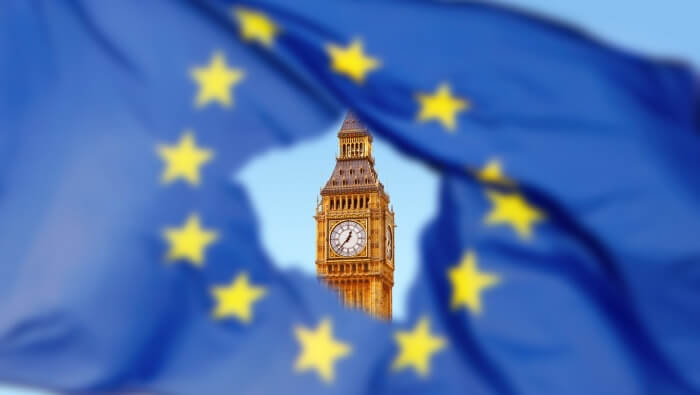The UK games industry is a jewel in the country's economy but Brexit, the biggest gamble of all, poses risks to the burgeoning sector.
UK Gaming: The State Of Play
The UK games industry is a jewel in the country's economy but Brexit, the biggest gamble of all, poses risks to the burgeoning sector.

All of a sudden, online or ‘e’ gaming has become a global business. Fuelled by social media and ever-better mobile technology the industry has soared in recent years with lowly start-ups transforming into major success stories seemingly overnight.
According to the Association for UK Interactive Entertainment (Ukie), the sector – including online video games, esports and gambling ventures – contributes billions of pounds to the UK economy every year.
Roughly half of the population, or 31.6 million people, play games with just under six in 10 prepared to spend money to do so. These spend on average more than $200 per year. UK players also play longer: an average of 8.2 hours per week compared with 7.2 in Germany and just 6.8 in France.
On its own, the esports sub-sector will have an estimated audience of 6.5 million in 2016 with 3.1 million watching others play games at least once a month. It’s big money; the ECS Season One Final held at the Wembley SSE Arena last June had a top prize of $765,000.
And esports are not just for newbie firms, ‘old economy’ businesses are getting in on the act too. Major football clubs including Manchester City and West Ham have signed esports players on professional contracts, while Game, the UK’s biggest gaming retailer, acquired esports business Multiplay in 2015 for a reported £20 million.
Mobile gaming is another burgeoning sub-sector with just under 1,500 UK games companies currently operating. The country is the largest employer of mobile games workers in the EU, accounting for nearly a quarter of the total workforce, according to the accountancy firm Deloitte.
A place for the players
Figures from the UK Gambling Commission show that online gambling now accounts for a third of the total, with online gambling operators generating a gross yield of £4.5 billion in the 12 months between April 2015 and March 2016.
It is now the biggest slice of the gambling sector. The National Lottery generated £3.4 billion over the same period, with £3.3 billion from high street betting shops and £1 billion from bricks and mortar casinos.
Of the £4.5 billion, £2.6 billion came from online casino games, £1.6 billion from online betting sites and £152 million from betting exchanges. Slot machine games played online accounted for £1.8 billion alone, according to the Commission’s stats.
Commenting on the figures, its programme director James Green said: “Our latest statistics show that with the growth in online gambling the industry is increasingly taking a creative approach to using technology to engage consumers.
“As the online sector grows operators will also need to demonstrate that they are taking an equally innovative approach to ensuring gambling is safe for all online consumers.”
A hive of innovation
Startups in the industry are creating enjoyable new games, developing more value and building a better, more vibrant environment for players.
British success stories include Betfair, the world’s largest betting exchange; Smarkets, a privately held company based in Hammersmith, and a constellation of smaller operators creating games, and exchanges or simply smoothing the process of gambling for players.
One example is Bookee, a London start-up aiming to make betting as easy as hailing a cab on Uber or checking someone out on Tinder. It borrows the ‘swipe left or right’ formula to serve up betting options and allowing bettors to accept or reject punts with a single swoosh on their phone.
"Now Facebook and Instagram that’s how millennials consume content in this day and age,” co-founder Adam Kalmanson told Bdaily: It’s in small, manageable, bite size pieces. As the user flicks through these platforms learn from what they’re doing and serve them better content.
"The beauty behind Bookee is making a simple, intuitive, really really fun and easy to use sports betting platform. And that it is built purely for the mobile in mind rather than anything else."
In January, the start-up had processed £100,000-worth of bets and the founders are targeting between 40,000 and 50,000 users in 2017. Meanwhile, they are also looking into related verticles such as casino games and bingo.
Another growing business in the sector is Commologic, creators of the “second screen experience” BetUp. The pool-betting game is designed to liven up sporting events by allowing players to score points by predicting events in a live football match. The highest scores win a share of a prize pool.
The game was licensed to Unibet in 2016. At the time, Commologic founder and chief executive Tamir Berler said: “Although sports betting is thriving, there has been very little innovation when it comes to softer, complementary products.
“BetUP is a fresh and innovative game that is entertaining and fun to play, while for operators it provides a new audience, high profit-margins, is risk free and extends session times and touch points.”
The Brexit effect
The biggest political event of the last 50 years, the UK’s decision to leave the EU, was also a tumultuous occasion for the wider gaming industry. Research by Ukie published in March shows that 57% of UK games companies employ people from the EU and 40% are considering relocating for fear that Brexit will negatively impact their business.
As yet, there has been no agreement guaranteeing the rights of UK citizens living and working in the EU or vice-versa.
In a statement accompanying the research, Ukie said: “There is an urgent need for the government to clarify whether EU citizens currently working in the UK will have a right to remain, and 98.4% of respondents believe in the future EU nationals who meet skills criteria reflecting the games industry’s needs should have a blanket right to live and work in the UK.
“Our primary concerns are facing new non-tariff barriers and future regulatory divergences that could hinder market access. Games also remain a physical product and it is important for businesses that UK-EU trade is kept tariff-free.”
While the process of untying the UK from its old relationship with the EU will take years, businesses across the gaming sector will keep a close eye on agreements as they are (or are not) cemented.
Gaming is becoming a diamond in the UK economy, creating jobs, building businesses and providing entertainment for the masses of customers who play each week. The UK government would do well to treat it with kid gloves as the industry reaches its full potential.
Thanks for signing up to Minutehack alerts.
Brilliant editorials heading your way soon.
Okay, Thanks!




